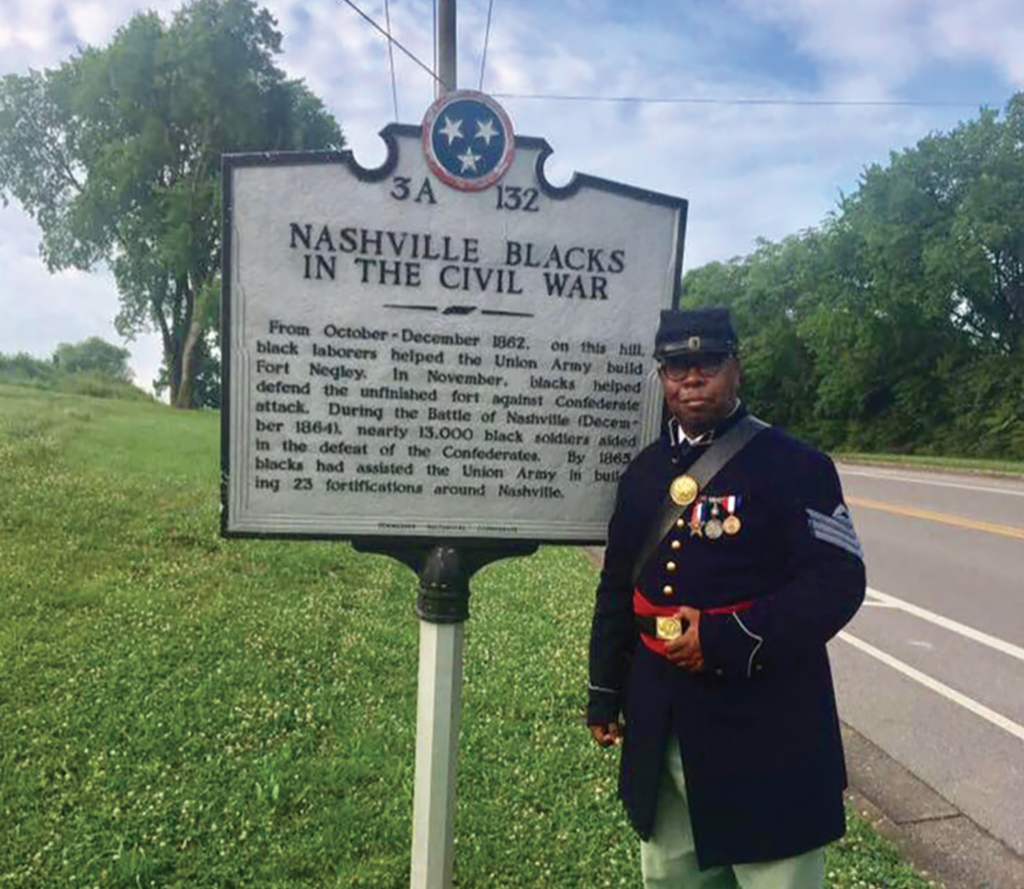Nashville, TN
Fort Negley
Images courtesy of Nashville Sites and Wikimedia Commons.
The first TN Site of memory
Ellis Island
Fort Negley, located in Downtown Nashville, TN, was the first U.S. site to receive designation as a UNESCO Site of Memory. During the Civil War, escaped slaves came to Fort Negley to fight. Freedmen were also conscripted to build the fort, as shown in one of the above images. Fort Negley is known as Ellis Island for formerly enslaved people.

History and Significance
Fort Negley was the largest fort built by the Union army. It was built in 1862 by conscripted laborers- both slaves and freed Blacks. More than 2,700 African American men worked to build Fort Negley; only 300 were paid for their labor.
After the Civil War, a Black community was established on St. Cloud Hill. It was known as the Bass Street community, and it was Nashville’s first free Black community, made up of people who helped build the fort. After defending the fort and surviving the hardships of the Civil War, these people remained and built a home at the foot of the hill. However, during the 1950s and ’60s, this historic African American neighborhood was destroyed for the construction of Interstate 65. Since enslaved people weren’t allowed to read or write, our knowledge of this community is limited. Students at MTSU and Vanderbilt are conducting an archaeological dig in hopes of uncovering more information about this community.
The entire history of Nashville’s Black community is not being told. For so long, this place has been overlooked, which is why its designation as a Site of Memory is significant. The descendants of Fort Negley are descendants of people who finally said “no” to the system. All of Nashville’s culture can be traced to this African American community.
Quotes from Dr. Sutton:
“Fort Negley was the ideal candidate for nomination because it touches on every aspect of enslavement that the United States shares with other slave societies. Yet it was also a site that drew free skilled laborers of African descent looking for work, and a site where the United States Colored Troops defended the Union and fought for a better future for their descendants.”
“Fort Negley and its legacy isn’t just about slavery, but about resistance to that institution, and resilience, and most importantly, recovery…[the UNESCO] designation means that the UN believes Fort Negley to be a fundamental site in helping the world understand and fully acknowledge the injustices from slavery that persist to this day, so that we can move forward into an equitable future.”

“[Fort Negley] is a story about freedom, white resistance to it (eg KKK using it as an initiation site), and public Memory/Amnesia. Four years ago, I was intimately involved in the effort to keep developers off the site and was delighted when I received news of its recognition as a UNESCO Site. This links this space to a larger, global discussion of freedom. The people who settled in its shadow also played a role in the development of Nashville.
When I look at Fort Negley today, I imagine that it is Nashville’s version of Stone Mountain, GA. In a way, it memorializes the same period in history, but instead of it highlighting an unfortunate pervasive myth in American history, one that requires the veneration of men who fought against the United States for the purpose of sustaining the enslavement of African Americans, Fort Negley is a monument to freedom. It has the potential to be one of the most important and influential monuments to freedom in the American South.”
– Dr. Williams
